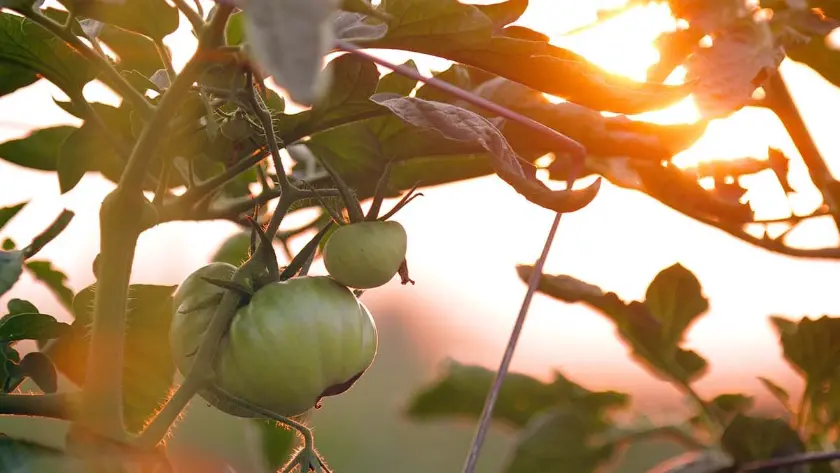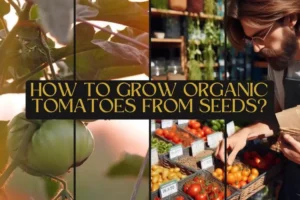Going organic isn’t just for hippies who constantly tell you about how important it is to save the planet. Those of you who want to plant tomato from seed in a way that produces healthy fruits for your body care as well. It’s not only tree huggers who care about going organic; people who care about their health care, too.
Why go organic?
Everyone has their own reasons for going organic. Some people, like we mentioned earlier, care about the planet, while others care about their health. You might also find that going organic might be cheaper for the home gardener. Paying for all those chemicals isn’t cheap, and sometimes you have to reverse what you did last year if you’re planting tomatoes in a patch of land that you had something else in before.
Can you buy organic seeds?

Well, not really. While you can purchase seeds labeled as organic, it essentially means that the plants they came from were grown under organic conditions. However, the seeds themselves aren’t organic in the way that soil or produce can be.
So, the long story cut short is, don’t buy into organic seeds. It’s a bunch of hype that will cost you more in the long run. Stick with whatever seeds you buy at your local gardening center, and you’ll be fine.
How do you plant organic tomatoes differently?
Okay, so the truth is, nothing is really different. Not in the sense of Okay, so the truth is, nothing is different. Not in the sense of the planting procedure itself but rather in how you prepare the soil and protect your tomato plants from pests.
You see, you will be using organic fertilizers and natural ways of getting rid of pests. You aren’t going to be filling the area full of chemicals to make your plants grow stronger or to keep them away from pests that can do harm.
What are some ways to organically fertilize your tomato plants?

When starting your tomato plants from seeds, you can organically enrich the soil with decomposed compost or worm castings. These natural things provide nutrients and improve soil quality, ensuring healthy growth for your tomatoes.
The quality or structure of your soil is essential because you want it to be able to retain water. Also, the worm castings will introduce beneficial microorganisms to the soil, breaking down organic matter and making it easily digestible for your tomato plants.
What are some natural organic ways to deal with pests?
Probably the most common organic method is introducing beneficial insects, like ladybugs and lacewings, to prey on harmful pests. That’s right, these insects will munch on the pests, and they’ll be a thing of the past. Another thing you can do is use neem oil, a natural insect repellent, which not only deters pests but also helps prevent fungal diseases.
The organic route isn’t as difficult as you think
So, what do you think about all this organic stuff? Do you think it’s all hype? Well, it might be when you’re shopping at the grocery store. Organic tomatoes cost an arm and a leg, but they don’t have to be more expensive when raising them in your garden. If you’re the type who wants to eat all organic food, you can do just that by following these steps and ensuring that your next tomato harvest is all organic.
